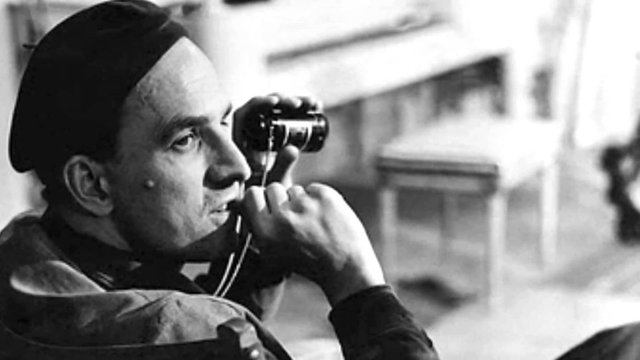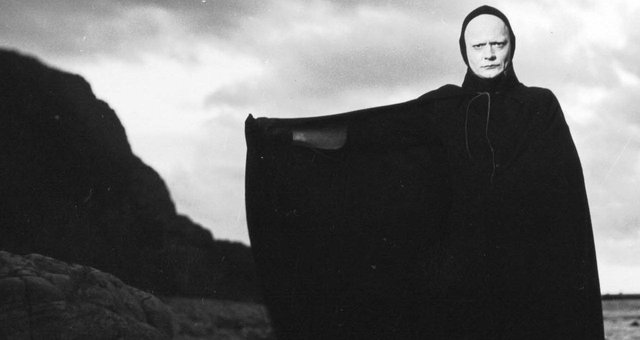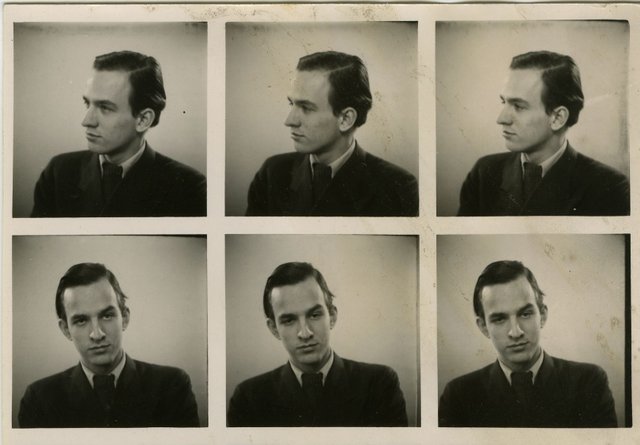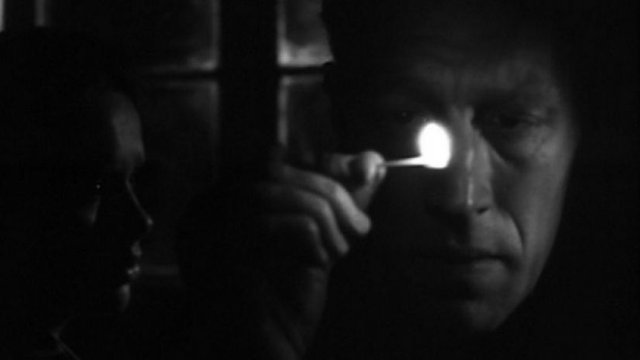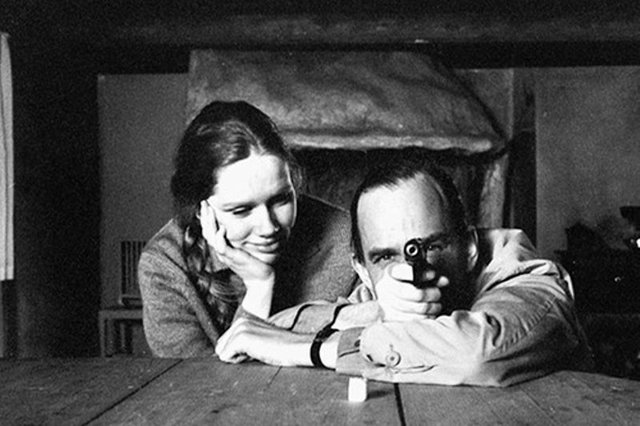/ Ingmar Bergman : The Demon Director /
Since the 1950s, Bergman has included a devil in his signature, which reinforced the myth of Bergman as a demonic director. Bergman's notion of the influence of metaphysical forces that have an impact on the artist's psyche can partly be attributed to his idol August Strindberg.
He called his demons "forces" that oppose God. "Come priest, before I change my mind," says The Stranger at the end of a long part of Strindberg's play "The Road to Damascus."
Bergman constantly refers to his own demons, which he even writes in a special way (dämon instead of demon). Someone else would call them personal neuroses or anxiety attacks. Whatever the demons are, they exist in Bergman's universe. Following the example of Strindberg, he experimented and tried his own borders: "As a protest against the professor's instructions I stopped taking both the valium and the mogadon. The effect was immediate. Pushed anxiety appears as a strong flame of fire, insomnia is total, the demons are attacking and I think that I will fall apart from internal detonations.
In an unpublished and long unpublished note, Ingmar Bergman wrote in a notebook that will only later become Laterna magica:
"I, in fact, tried to stick to the truth. It's really hard for an old, stubborn victim of fantasy and lies that didn't fear to give reality the form he thinks he needed for a certain moment.''
At the end of his life, in a documentary show, sitting at a table in his house at Faro, Bergman read the list of his demons, holding a paper in front of a journalist in his hands,scratched out of the notebook. As demon number one, Bergman wrote the "Demon Catastrophe".
It's a fear that a detailed plan for the entire day, may collapse, and that everything "goes to hell".
For another personal demon, "Demon of Fear," Bergman said he was a little ashamed to admit he was afraid of everything, from cats, dogs, insects, birds to large groups of people, but also to some people individually.
For the third personal demon, "The Demon of Anger," Bergman said that he inherited it from his parents, causing occasional furious outbursts of anger. He confirmed that he had a very difficult temper.
For the next three demons he said that they are related and they are "Demons of Pedantry, Accuracy and Order". He is very aware of how hard they can be for his environment and the people he works with, but he thinks they are very necessary and useful in the so-called irrational profession he deals with. Because of this, work and order are necessary, as well as peace and harmony, but it doesn't bother if someone, along the way, finds out. Especially he pointed out that he hates when someone during the film shooting or a rehearsal comes at the last minute.
For one demon, he said happily, that he doesn't have. And this is "Zero Demon". This would actually mean that virtually all of the creativity and imagination would completely abandon him, and he would be surrounded by silence, emptiness and nothingness, as it never happened and that's why he felt gratitude.
"Hour of the wolf is an hour between the night and the dawn, it's the time when most people die, when the dream is the deepest when nightmares are the most creative. It's a time when a man with insomnia suffers from his greatest fears, when the demons are the strongest. It is also the time when most children are born."
Bergman wrote in an explanation of the start of the film Hour of the Wolf(1968).
Like Strindberg, Bergman also benefited from his demons, "tying them up in the carriages," making them useful. He used them in a creative way, especially in the movie Hour of the wolf, which is a kind of catalog of demons who visited him.
Bergman tried to explain his own mythopoetic world with the help of the famous song "Everyone is a world" by the great Swedish poet, Gunar Ekelof, published in 1945. In the program for the performance "Markisinnan de Sade", Bergman included this Ecoleff song:
Everyone is a world
Everyone is a world, peopled
by blind beings in dark commotion
against the self the king who rules them.
In every soul thousands of souls are trapped,
in every world thousands of worlds are hidden
and these blind, these underworlds
are real and living, though incomplete,
as true as I am real. And we kings
and princes of the thousand possibilities in us
are ourselves servants, trapped
in some greater creature, whose self and being
we grasp as little as our own superior
his superior. Our own feelings have taken
the color of their love and death.As when a mighty steamship passes
far out, under the horizon, lying
in the evening glitter- - And we don’t know about it
until the swell reaches us on the shore,
first one, then another, and then many
which strike and boom until everything has become
as before. – Yet everything is different.So we shades are troubled by a strange unease
When something tells us that others have gone ahead,
That some of the possibilities have been released.
(1)
''Being an artist for yourself is not always pleasant. But this has an extraordinary advantage: The artist shares his experience with every living being, although he has acquired himself for himself. The result of this is a rather large brotherhood, which in this way exists in a selfish communion in a warm, dirty country under one empty and raw sky " (Ingmar Bergman)
This was my translation from PULSE article ''Bergmanovi demoni'' by dr. A. Luthander
(1) Songs of something else. Selected poems by Gunnar Ekelöf translated by L. Nathan & J. Larson. Princeton, 1982, p. 45
